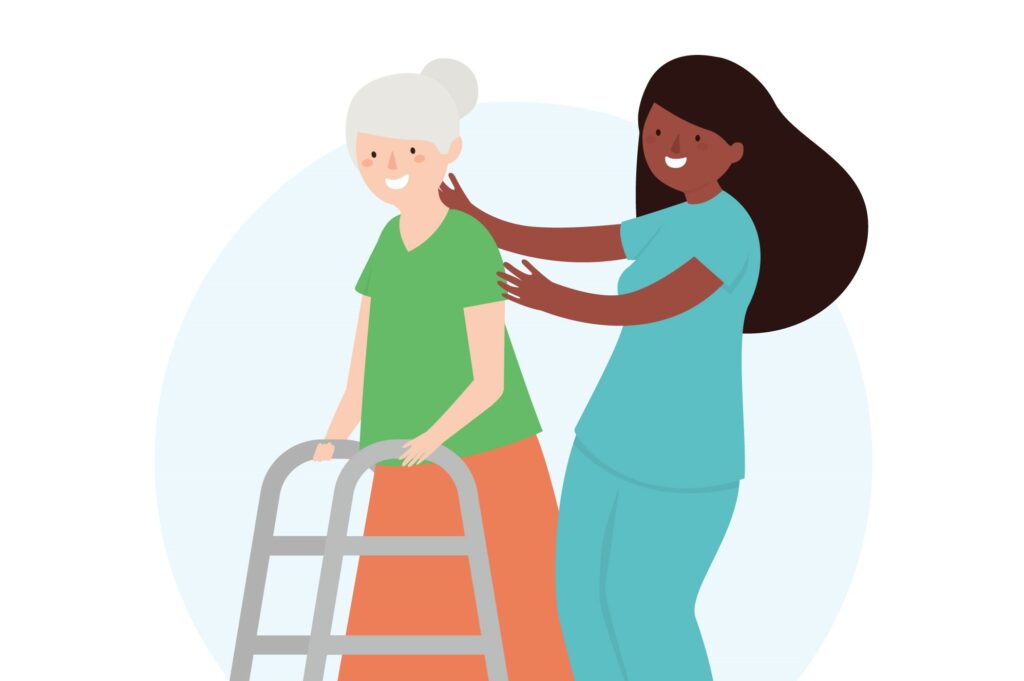As the Department of Health and Social Care announces its adult social care workforce reform package, Oonagh Smyth, CEO of Skills for Care, gives her insight into what this means for recruiting, retaining and empowering the care workforce.

A positive direction for social care
I’m pleased we've begun 2024 with the Government's announcement of this workforce reform package. This includes the first version of a Care Workforce Pathway (‘Pathway') and a new Care Certificate qualification.
Both developments will be essential in supporting learning and development opportunities for people who work in adult social care, as well as boosting recruitment and retention, which are persistent challenges for employers.
Previously, there was no consistent career structure or clear articulation of the level of knowledge, experience and skill required to deliver high-quality, personalised care and support.
The Pathway will help to articulate what a career in social care means and what is expected of those supporting people who draw on care and support.
Critically, it will make sure colleagues working in social care are recognised as the skilled and committed professionals they are and supported to develop in their long-term roles.

The sector wants this
From discussions and responses to the call for evidence, it's clear there has been enthusiasm across the sector for the new Pathway. It will develop a universal understanding among people working in care, those drawing on care and support, employers, and commissioners, about the roles that exist in social care and what they offer.
Following the Call for Evidence last year, the first phase of development is now complete. The DHSC and Skills for Care partnership benefited from invaluable support from and collaboration with:
- Think Local Act Personal (TLAP, who developed the underpinning values)
- British Institute for Learning Disabilities (BILD, who developed the Practice Leadership role)
- the expert consultation group for adult social care who informed the development throughout and
- the adult social care workforce and people who draw on care and support, who generously gave their time and insight.
This initial phase focused on articulating the knowledge, skills and behaviours associated with roles providing direct care; from those new to care, to those leading in specialist areas of practice. Importantly, it also articulated the values people working in care need to demonstrate. I’m now very excited to see the next phase of this work carried into other parts of the workforce.
I’m also really pleased to see the development of the new Care Certificate qualification. We recommend everyone new to social care completes the Care Certificate as part of a robust induction process. We know from our data that 65% of direct care providing staff who’ve started work in the sector since January 2015 have engaged with the Care Certificate.
Its further development will transform the certificate into a recognised qualification, something the sector has wanted to see for a long time.
Skills for Care has been working on developing the content of the qualification, in collaboration with the sector through a series of focus groups and stakeholder meetings.

The work goes on
Over the next few months, awarding organisations will be using the content to create and launch their qualifications. We expect these to be available to the sector in the summer.
The new qualification reflects the existing content of the Care Certificate standards, with some updates based on emerging themes, such as personal wellbeing, digital skills and equality and diversity.
The aim is to improve portability of the Care Certificate between different employers by creating a more robust delivery, assessment, and standardisation process.
Skills for Care is looking forward to supporting DHSC with the next steps in both pieces of work and seeing the benefits they will bring to the sector in 2024 and beyond.
Skills for Care is currently running a campaign to support the sector to #KeepLearning. Find out more on the Skills for Care website.
2 comments
Comment by David Bates posted on
Great work but we were doing this forty years ago! Why has there been such an erosion in holistic and coherent care across the piece? Why don’t we teach community care up front in medical schools and nursing/AHP curricula? Have we learned nothing from the CoViD crisis that was exacerbated by government ineptitude? I am appalled by the state of public health and care in this country compared with when I was a student nurse in 1979!
Comment by Ann Elizabeth Murphy posted on
I have been a nurse for 43 yrs ,and I feel care is no where ner as good as when I started out.The gap between NHS and Private sector is getting bigger not smaller.Care home staff are still looked upon as second class compared to NHS colleagues.Private care home companies promise the world to employ staff ,but in reality it is very different.Until better terms and conditions happen in private care ,the best staff will always go to the NHS and who can blame them,wneh supermarkets to name but one ,offer better wages.I work for a charity and work two x14 hour shifts and after 1 of these shifts I am expected to work a sleepover shift from 10pm to 8am for the princely sum of £58.50,doesnt even meet minimum wage but ,they get away with it.I am glad i only have 3 yrs left to retirement,so while everything looks good on paper,nothing will change ,as all the private companies are interested in is profit not care